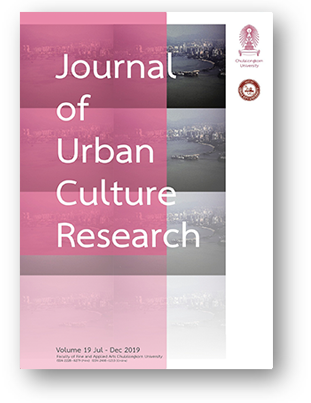Heritage and Scale – Challenges to Wellbeing and Place Management in Dubrovnik’s World Heritage Site
DOI:
https://doi.org/10.14456/jucr.2019.7Keywords:
Urban Heritage, Wellbeing, Identity, Heritage Management, Cruise Tourism, Over-Tourism, Tourism Overheating, Sustainable TourismAbstract
This article is an ethnographic contribution to ongoing debates on the consequences of heritagisation and touristification in the lived realities of World Heritage sites. Based on my doctoral research in Dubrovnik, Croatia, the article provides an ethnographic case-study that explores the consequences of global tourism and relationships of scale on Dubrovnik’s urban development, local tourism management and the citizens’ experienced wellbeing. The article calls for a broader conceptualization and treatment of heritage that encompasses the multiple values attached to the World Heritage and the wider geographical scale and socio-cultural relations that the World Heritage is situated in. To the inhabitants living in or near the enlisted site, Dubrovnik’s World Heritage is made meaningful to its citizens within the horizon of the city’s wider cultural heritage, historical relations and embedded cultural historical structures. At the same time, global tourism and relationships of scale asserts ever stronger impacts on how World Heritage sites are managed, understood and used, for instance as selling-points in tourism and place production. A ‘scaling up’ in the tourist industry’s power and ownership structures in the new Millennium have affected World Heritage sites’ possibilities to influence destination management and to bring forth a sustainable and responsible tourism.
Downloads
Published
How to Cite
Issue
Section
License
Authors authorize the JUCR to publish their materials both in print and online while retaining their full individual copyright. The copyright of JUCR volumes is retained by Chulalongkorn University.
The views and opinions expressed herein are those of the individual author(s) and do not necessarily reflect the policies or opinions of the Journal (JUCR), it editors and staff, Chulalongkorn University, or Osaka Metropolitan University.







